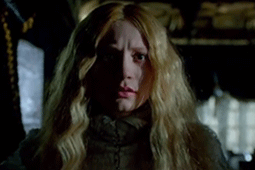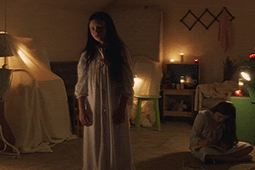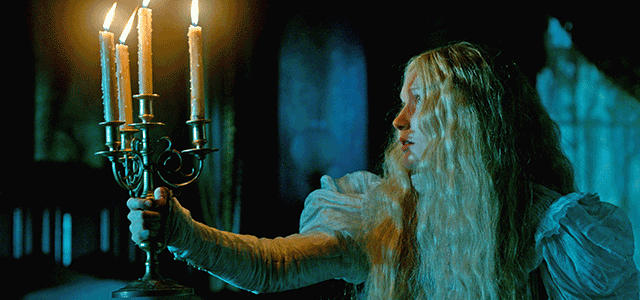
Few directors stir the emotions as effectively as Mexico's finest Guillermo del Toro, a man possessed of an extraordinarily vivid imagination that's given birth to the likes of the celebrated fantasy Pan's Labyrinth.
This week, the director is back with visually evocative Gothic horror/romance Crimson Peak, starring Mia Wasikowska, Tom Hiddleston and Jessica Chastain in an intoxicating story of a rambling country mansion haunted by spirits from the past.
Not up on your del Toro knowledge? Want to know why you should watch Crimson Peak? Then let us explain...
1) He's always been obsessed with monsters
Like many children, the young, Catholic-raised del Toro was terrified by the thoughts of deadly beings coming to get him. But unlike many youngsters, the director claims he made a pact with the monsters so they would leave him alone – giving rise to the wonderfully twisted creations seen in the likes of Cronos, Hellboy and Pan's Labyrinth.

2) He was schooled by horror royalty
Del Toro was a close friend and colleague of late, legendary make-up artist Dick Smith, who fashioned the unforgettable effects seen in landmark 1973 horror The Exorcist. In 1987, the director applied for Smith's make-up course in New York and soon they became close associates. "He had dinner with my father and my mother and me and my wife, who was then my girlfriend," del Toro tells Vulture. "Dick came to be like part of my family. He was a guy that changed the way I see the art of making movies. He wanted to spread the gospel, the knowledge, amongst colleagues and amongst anyone who was interested in learning."
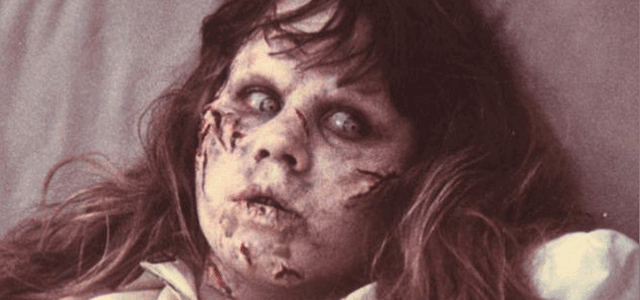
3) He has one foot in Hollywood...
Del Toro embodies the 'one for them, one for me' mentality. His Hollywood creations, comprising Mimic, Blade II, the Hellboy movies and Pacific Rim, feature considerably larger budgets and bigger stars than his Spanish movies. Take for example the Idris Elba-fronted Pacific Rim, a movie that featured gargantuan scenes of kaiju (Japanese for 'strange beast') battling skyscraper-sized robots. It takes a certain kind of director to pull off that sense of scale – but del Toro is that man.
4) ... But he also stays true to his homeland
It's arguably the director's smaller films that are the most compelling and interesting. His acclaimed 1993 calling card movie Cronos was a creepy and inventive twist on vampire mythology, in which an insect contained inside a clockwork device drew blood from its victims. The movie went on to win nine Mexican Academy Awards. Then in 2001, his eerie and engrossing ghost story The Devil's Backbone became the first of his films to address the legacy of the Spanish Civil War, taking place inside a remote Spanish boarding school haunted by the spectre of a child.
5) He redefined the fairy tale movie
The film for which del Toro is best known is his remarkable 2006 fantasy Pan's Labyrinth, recipient of worldwide acclaim and which Wittertainment critic Mark Kermode described as "the Citizen Kane of fantasy cinema". A violent and powerful fusion of Spanish Civil War story and fairy tale, the movie forces us to question the nature of reality: are we destined to live in a violent world or is there a fantastical, pain-free realm we can escape to after death? To its credit the movie never answers that question, and it went on to win three Oscars (although sadly the director himself lost out).
6) He's best mates with Ron Perlman
In 1993, del Toro cast the Hand of God actor in Cronos. But it was in 2004 when he gave him the plum title role in comic book adventure Hellboy that we really saw what their partnership was capable of. In Perlman's hands, the horned, wisecracking Hellboy became one of the most enjoyable and likeable big screen anti-heroes in recent years, forever chomping on his cigar and, in one hilarious scene in 2008 sequel The Golden Army, harmonising whilst drunk to Barry Manilow.
7) His father was kidnapped
During the troubled production of 1997 giant insect horror Mimic, del Toro's dad was kidnapped and held to ransom for 72 days. Thankfully, the ransom was paid and his father was released without being harmed – amazingly, according to Cinema Blend, with the help of fellow director James Cameron. Amazingly, del Toro said that battling with studio executives during the production of Mimic was more traumatic than the kidnapping itself. "What was happening to me and the movie was far more illogical than kidnapping, which is brutal, but at least there are rules," he explains. "Now when I look at Mimic, what I see is the pain of a deeply flawed creature that could have been so beautiful."
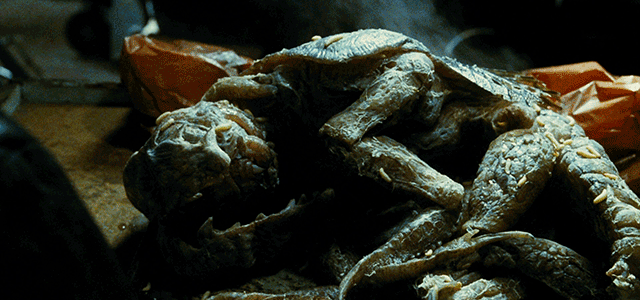
8) He's fascinated by ghosts
And not just the literal ones either. A self-confessed fan of classic 1961 chiller The Innocents, del Toro opens The Devil's Backbone with the following haunting lines about what constitutes a ghost: "What is a ghost? A tragedy condemned to repeat itself time and again? An instant of pain, perhaps. Something dead which still seems to be alive. An emotion suspended in time. Like a blurred photograph. Like an insect trapped in amber."
9) His producing credits are equally impressive
Not just a director extraordinaire, del Toro has also thrown his support behind loads of projects in recent years, including TV hit The Strain starring Corey Stoll. Among his many producing credits: Shrek spin-off Puss in Boots, superb 2007 Spanish chiller The Orphanage and last year's visually striking Mexican animation The Book of Life.
10) He needs to clear something up about Crimson Peak
Although his latest movie draws on a rich heritage of ghostly cinema, del Toro wants audiences to know exactly what they're getting into. "Crimson Peak is not a horror film, it's a Gothic romance, something completely different," he tells Wired. "In Gothic romance, it's mostly about a princess figure falling in love with a dark gentleman and going to a crumbling mansion." Consider us told.

11) Crimson Peak was real
No doubt your jaw dropped during the trailer when Tom Hiddleston's Thomas Sharpe sweeps Mia Wasikowska's Edith into his stately pile. But if you thought all that was CGI, think again. "I thought the best course of action was to build it for real," del Toro says of the house. "I think that digital and computer effects should only be used as a last resort. We can put a great deal of craftsmanship into creating a vital character of the movie." Wouldn't want to live there though...
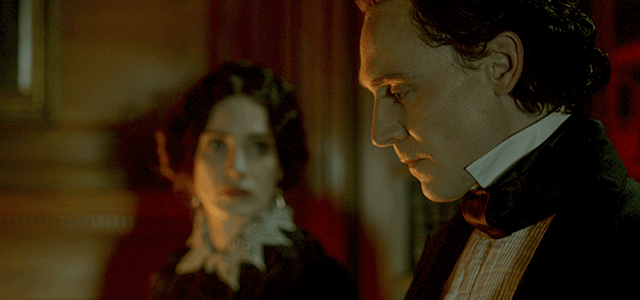
12) Pinocchio's next
Yes, the Pan's Labyrinth visionary is set to take on the timeless story of the wooden puppet who becomes a real boy. "I'm going back to the original book," del Toro says. "The original book is much more strange and disturbing in a way than the Disney version." Check out the HeyUGuys interview below.
Feel suitably brushed up on your del Toro knowledge? Then click here to book your tickets for Crimson Peak. And sweet dreams...

